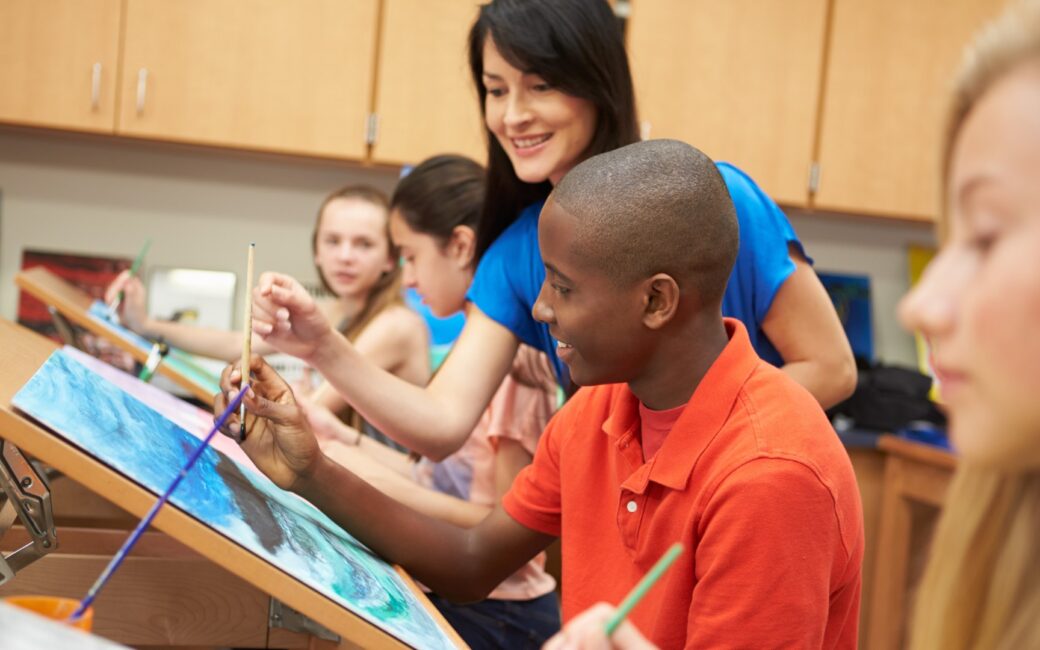Teaching is one of the most noble and impactful professions, shaping the minds and futures of the younger generation. Within the realm of education, art plays a crucial role, fostering creativity and allowing students to express themselves in unique ways. Art teachers stand at the forefront of this creative journey, guiding students through various forms of artistic expression.
The Educational Pathway
Becoming an art teacher requires a combination of education, passion, and dedication. Typically, a bachelor’s degree in art education or a related field is necessary. Some states may also require certification in teaching, which could include additional coursework and student teaching experience.
It’s crucial for aspiring art teachers to research the specific requirements of the state in which they intend to teach. Additionally, continuous learning and professional development are key components of a successful teaching career, and there are various workshops and courses available for art teachers to hone their skills and stay updated on the latest teaching methods.
Skills and Qualities of a Successful Art Teacher
A blend of artistic talent and teaching skills is essential for success in this field. Art teachers must possess strong communication and interpersonal skills to effectively convey artistic concepts and techniques to their students. Patience and adaptability are also vital, as students’ learning paces and styles can vary greatly. Furthermore, organizational skills are crucial for managing classroom materials, student artwork, and lesson plans.
Prospective art teachers should also have a genuine passion for printing, art, and teaching, as this passion can inspire and motivate students. The ability to create a positive and inclusive learning environment, where students feel encouraged to express themselves, is also crucial.
Pros and Cons of Being an Art Teacher
As with any profession, there are both advantages and challenges to consider. Art teachers have the unique opportunity to ignite creativity and passion in their students, and they often have a more flexible curriculum compared to other subjects. However, they may also face challenges such as limited resources and budget constraints, and the pressure to justify the importance of art education in schools.
Job Market and Salary Expectations
The demand for art teachers varies by region and school district. In some areas, art programs are being cut due to budget constraints, which can affect job availability. However, there are also many opportunities for art teachers, particularly in private schools and community programs. Salaries for art teachers can vary widely based on location, level of education, and experience. Some art teachers may also pursue additional income opportunities, such as conducting workshops or selling their own artwork.
Work Environment and Conditions
Art teachers typically work in schools, but their work settings can also include community centers, museums, and private studios. They often have a standard teaching schedule, but may also need to dedicate time outside of regular hours for lesson planning, student evaluations, and school events. It’s important for art teachers to create a safe and inspiring learning environment, where students can explore various artistic mediums and techniques.
Professional Development and Career Advancement
There are numerous opportunities for art teachers to grow professionally. Attending conferences, workshops, and continuing education courses can help art teachers stay updated on the latest trends and best practices in art education. Additionally, pursuing advanced degrees can lead to opportunities for career advancement, such as becoming a department head or curriculum specialist.
The Impact of Art Education on Students
Art education plays a vital role in students’ cognitive, social, and emotional development. It encourages creative thinking, problem-solving skills, and enhances students’ ability to communicate their thoughts and feelings. Additionally, art education provides a safe space for students to explore their identities and connect with their peers on a deeper level.

